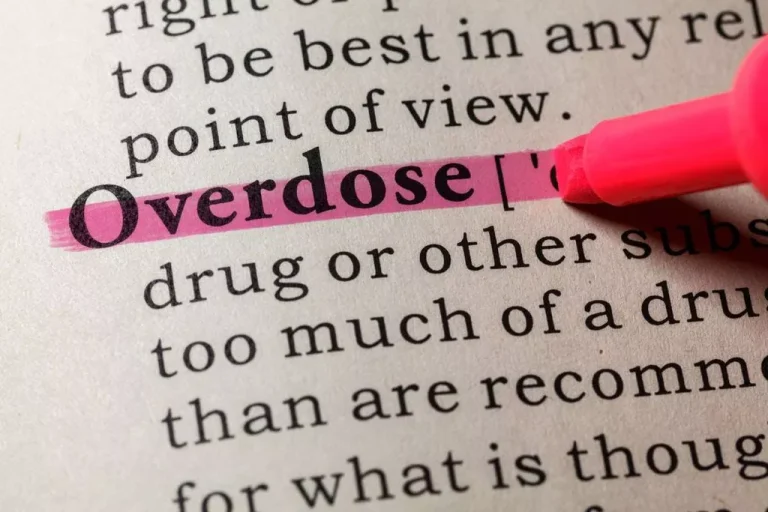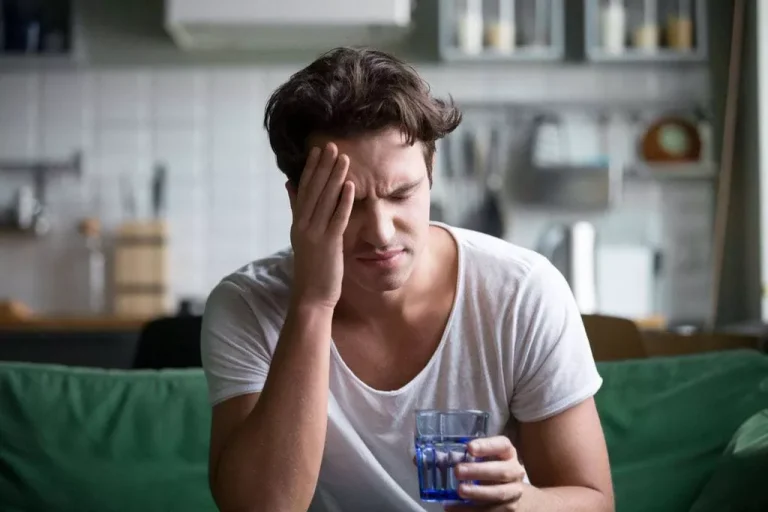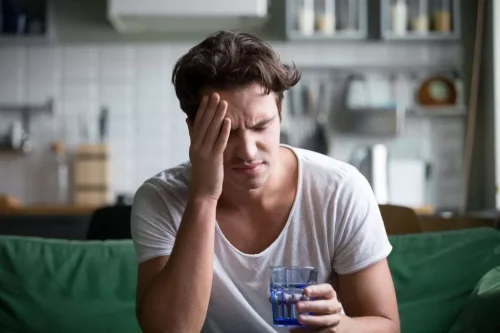
For example, AUD that develops after the onset of a depressive disorder and is characterized by coping motives for alcohol use may differ critically from a depressive disorder that develops following chronic alcohol administration. Data from studies of depression indicate that the substantial variability in the symptoms presented reflects a heterogeneous pathophysiology,32 yet research on heterogeneity in co-occurring AUD and depressive disorders remains limited. “An experienced psychiatrist or another mental health professional familiar with mood disorders and the effects of alcohol abuse can be instrumental in recommending appropriate medications and monitoring medication efficacy,” says Kennedy. These different models are not necessarily irreconcilable when considering the pathodevelopmental trajectory of addiction. During the early binge/intoxication (impulsive) stage of addiction, the opponent process model would anticipate low levels of negative affect, but during the later stage of negative affect/withdrawal, the model specifies the presence of significant negative affect and drinking to cope.
Anxiety and Alcohol: Does Drinking Worsen Symptoms?

Many of these studies are mentioned in the Schuckit and Hesselbrock review, including the work by https://ecosoberhouse.com/ Merikangas and colleagues (1985). Other such studies are highlighted in the review by Brady and Lydiard (1993). As alcohol is a sedative and depressant, it can relieve feelings of fear and anxiety in the moment. But after the alcohol wears off, you can start to feel your anxiety come back even stronger. One study of people with both AUD and depression undergoing treatment for both conditions found that the majority of symptom improvement for both conditions happened during the first three weeks of treatment.
- Drinking to cope with depression, no matter if you have an alcohol use disorder, is concerning.
- In fact, with abstinence the depressive symptoms are likely to improve in a shorter period of time than would be required for an anti-depressant to take effect (Brown and Schuckit 1988; Powell et al. 1995).
- The substantial variability in the course of co-occurring AUD and depressive disorders may reflect discrete underlying mechanisms, requiring distinct treatment approaches.
Effects of Alcohol Use
This article covers everything you need to know about the connection between alcohol and depression. Naltrexone, Acamprosate, and disulfiram are also FDA-approved medications that can help curb alcohol cravings. Depending on the severity of the disorders, you may need more intense treatment, such as outpatient care, integrated assertive community (ACT) treatment or a residential stay, which may be required to begin or continue your recovery journey. “Therapeutic interventions designed to address both issues often include a focus on addressing emotional pain or trauma, as well as developing and practicing healthy coping behaviors,” says Kennedy. In residential treatment, “an individual stays in a treatment setting, receives intensive therapy, and is physically separated from alcohol in order to recover,” says Kennedy. “Cells are living beings, and if you want to fix the issue of depression at the level of the cells, they cannot be inebriated,” says Taylor.
Alcohol Use Disorder and Depressive Disorders
The largest and most comprehensive community-based surveys in the United States include the Epidemiologic Catchment Area study (N ~ 20,000), the National Comorbidity Survey (N ~ 8,000), and the National Epidemiologic Survey on Alcohol and Related Conditions (NESARC, N ~ 43,000). Some individuals may benefit from treatments such as medication or counseling. Similarly, people with severe anxiety disorders may be more likely to develop alcohol and depression AUD, particularly if they use alcohol as a coping mechanism. People with severe anxiety disorders may be especially at risk of developing AUD. Whether depression is a stand-alone diagnosis or caused by drinking, alcohol often worsens symptoms.
- Recent “big data” modeling approaches have advanced the understanding of epidemiological data related to the association between anxiety disorder subtypes and risk for alcohol misuse.
- Psychiatric and epidemiological studies show that having either an anxiety- or alcohol-related diagnosis elevates the prospective risk for developing the other disorder.
- These research approaches lead to three conclusions, discussed below.
- As alcohol is a sedative and depressant, it can relieve feelings of fear and anxiety in the moment.
- People can speak with a healthcare professional for help managing anxiety or mood disorder symptoms.
Depression and Alcohol Misuse
Recovering from depression and AUD is difficult because the disorders can worsen one another. Often, people turn to alcohol to help relieve their depression symptoms. Still, many people who receive a diagnosis of substance-induced depression are later re-diagnosed as having depression because symptoms continue after they stop drinking. A separate survey published in the International Journal of Environmental Research and Public Health found that nearly half of people who reported increased drinking during the pandemic said stress was to blame.
However, alleviating depression does not resolve the alcohol use disorder. In some cases, you may receive a dual diagnosis of a major depressive disorder (MDD) and an alcohol use disorder (AUD). This co-occurring disorder isn’t uncommon, but it can be difficult to treat. If you experience hangxiety regularly or if your anxiety feels overwhelming, it might be a sign that your body isn’t handling alcohol well. This doesn’t mean you have an alcohol problem, but it could be worth thinking about how much you’re drinking and whether it’s affecting your mental health. A DSM-IV diagnosis of alcohol dependence required meeting at least three of seven criteria.12 The first two criteria were physical—development of tolerance to alcohol and development of withdrawal symptoms.

These changes can heighten the physiological “rewards” of alcohol and increase the likelihood that they will continue their pattern of drinking. Whether you’re experiencing depression or not, it’s essential to evaluate your drinking habits and consider why you drink, when you drink, and how you feel when you drink. Depending on your intoxication level, you may experience decreased inhibition, loss of judgment, confusion, and mood swings, among others. “In our society alcohol is readily available and socially acceptable,” says Jill Bolte Taylor, PhD, author of Whole Brain Living, explains. “Depression and alcohol misuse are often tied because we take a depressant to counter a chemical depression which only makes it worse.” That’s why your doctor or psychologist will work with you to create a treatment approach that addresses both issues.
- The Bronfenbrenner Center for Translational Research at Cornell University is focused on using research findings to improve health and well-being of people at all stages of life.
- You might try to drink more alcohol to get rid of these symptoms, but using alcohol to manage your mental health instead of getting help can lead to more problems.
- A subsequent followup of the Danish population revealed higher levels of anxiety disorders but not depressive episodes for the offspring of alcoholic parents, although by that age some of the symptomatology might already have resulted from high levels of alcohol or other drug (AOD) intake.
- Consistent with the generally negative results of these family type studies are the conclusions drawn from a recent study of 1,030 female-female twin pairs (Kendler et al. 1995).
However, as already noted, a dysregulated stress response is a known biological marker for the development of anxiety disorders and AUD, as well as for relapse. Recent “big data” modeling approaches have advanced the understanding of epidemiological data related to the association between anxiety disorder subtypes and risk for alcohol misuse. 2019 research suggests that depressive disorders are more common in people with alcohol dependence than in those who engage in alcohol misuse, like binge drinking.
- It’s not uncommon to use alcohol to cope with difficult feelings and experiences.
- If a person experiences alcohol withdrawal symptoms, it can create a cycle of heightened anxiety and increased alcohol misuse.
- While you might feel that it works in the short term, it’s more likely to cause you problems in the long run.
- In many cases, it is unclear whether alcohol causes anxiety or if anxiety makes a person more likely to drink alcohol.
- But with the right treatment and support, most people with depression can make a full recovery.

Alcohol can heighten anxiety symptoms, especially once the effects wear off. If you feel like hangxiety is getting in the way of your life or mental health, it might be helpful to talk to a healthcare professional. Hangxiety is the anxiety you feel after drinking alcohol, usually the next morning. While a regular hangover can make you feel sick, dizzy, or dehydrated, hangxiety brings in feelings of worry, nervousness, or even panic. It’s your brain and body’s way of reacting to alcohol after the buzz wears off.
Product Reviews
Integrated treatment approach that simultaneously target substance use and mental health symptoms when there is a co-occurrence have demonstrated superior efficacy compared to standalone interventions. The relationship between alcohol-use disorders and psychiatric symptoms is both clinically important and very complex (Brady and Lydiard 1993). As a typical depressant, alcohol affects the brain in many ways, and it is likely that high doses will cause feelings of sadness (i.e., depression) during intoxication that evolve into feelings of nervousness (i.e., anxiety) during the subsequent hangover and withdrawal. The greater the amounts of alcohol consumed and the more regular the intake, the more likely a person will be to develop temporary anxiety and depressive symptoms. As consumption increases even more, these symptoms also are likely to intensify. In the DSM-5, AUD requires at least two symptoms, whereas DSM-IV alcohol abuse required only one symptom.


